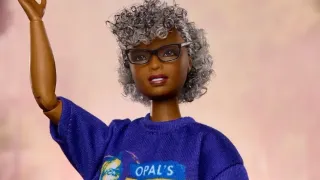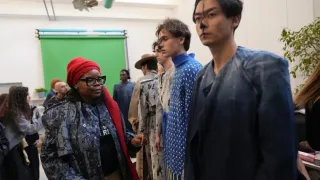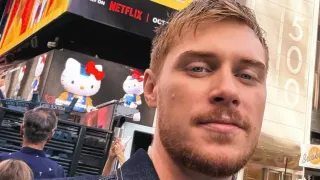November 18, 2017
Housing Focus of 1st D8 Supe Debate
Matthew S. Bajko READ TIME: 5 MIN.
The two gay candidates seeking the District 8 seat on the San Francisco Board of Supervisors differed over housing and homelessness at their first debate Monday night seven months before voters head to the polls.
The city's two LGBT Democratic political clubs, Alice B. Toklas and the more progressive Harvey Milk, co-hosted the November 13 discussion at the LGBT Community Center between appointed Supervisor Jeff Sheehy, a gay married father who is the first openly HIV-positive person to serve on the board, and attorney Rafael Mandelman, who serves on the board overseeing City College of San Francisco.
Sheehy and Mandelman are expected to twice compete for the board seat next year. The first election will take place on the June primary ballot as they are seeking to serve out the remainder of gay moderate former Supervisor Scott Wiener's term, as he resigned two years into his second term as supervisor after being elected to the state Senate last November. Mayor Ed Lee tapped Sheehy earlier this year to fill the board vacancy.
No matter the outcome of the June race, Sheehy and Mandelman have both filed to run for a full four-year term on the November ballot next year. It is the second time Mandelman has sought the District 8 seat, having lost to Wiener in 2010.
Throughout the course of the 90-minute debate Mandelman, seen as the more progressive candidate in the race, repeatedly praised Wiener and applauded a number of policies and positions he championed at City Hall and in the state Legislature this year. At one point, in talking about improving the city's public transit service, Mandelman said, "We need another Scott Wiener on the Board of Supervisors to work relentlessly for Muni."
His remarks elicited boos and groans from his supporters in the room and a rebuke Tuesday in a post on the website Medium from Wiener, who has endorsed Sheehy in the race.
"In fact, Rafael's politics and approach on key issues - housing and homelessness, in particular? - are the opposite of mine," wrote Wiener, noting how Mandelman did not endorse his re-election to the board or his bid for state Senate last year. "Rafael has every right in the world to disagree with me on any given issue. He just shouldn't be implying that 'if you like Scott Wiener, vote for me.' That's not the case."
Yet it wasn't just Mandelman who refused to keep to the political part he has been typecast as in the race. At times one would have thought Sheehy was the progressive's candidate for the seat, which was hardly a surprise as he is a former Milk club president and longtime AIDS activist.
In response to a question from moderator and KQED reporter Marisa Lagos about being independent as a mayoral appointee, Sheehy insisted he hardly knew Lee before being tapped to fill the vacancy and had only met him one time in years past. Sheehy also noted he did not support Lee when he sought election to Room 200 in 2011 as he thought the mayor should not have run in the first place. Instead, Sheehy felt Lee should have stayed true to his initial promise to only be an interim mayor after being appointed to the vacant office by the supervisors that year.
Nonetheless, "I think he has done a good job," said Sheehy.
When asked by Lagos which former District 8 supervisor would he most emulate, Sheehy praised all three of the gay men who had served in the seat but chose progressive stalwart Tom Ammiano, a gay man who held the District 9 seat on the board representing the Mission and is supporting Mandelman, as the type of leader he aspires to be at City Hall.
"I always loved Tom Ammiano. He embodied what a supervisor should be," said Sheehy.
Housing Differences a Matter of Degrees
The two candidates agree on the need for the city to build more housing for people with low and middle incomes, yet they differ on how they would ensure support for development projects in District 8, which includes the gay Castro district, Noe Valley, Diamond Heights, and Glen Park. The site of a former organic grocer on 24th Street in Noe Valley that is up for sale illustrates their divide.
Sheehy is pressing to see whoever acquires the property makes use of the newly enacted HOME-SF program that allows developers to add extra stories of housing if they set aside 30 percent of the units as affordable. And he pledged to back such a project against neighborhood opposition to the additional height in a business corridor with mainly three-story buildings.
"I am for housing, period," said Sheehy. "I am willing to take the heat to have housing built."
Mandelman pledged to side with the neighbors if they opposed the project. Rather than constructing taller buildings, he suggested a more palatable approach to gain additional dwelling spaces for residents in Noe Valley and Glen Park would be to build in-law units, an idea that Wiener championed and made possible with new zoning rules.
"Six stories on 24th Street might be great, but if the neighbors decide six stories is going to destroy 24th Street, I am not going to go to war with them," said Mandelman.
Yet he pointed out he is in opposition with neighbors of the Balboa Reservoir site who want to maintain it as a parking lot. Mandelman backs using it for mixed-use development with housing set aside for staff of City College, which is next to the site.
"We will not be able to house people if we don't make low and middle income housing a priority at City Hall," said Mandelman, who would like to see dense housing projects built at the two suburban-style Safeway shopping centers in District 8, one on upper Market Street and the other in Diamond Heights.
Sheehy has promoted opening a Navigation Center somewhere in District 8 that would be solely focused on getting homeless youth off the street. He pointed to his securing $1 million in funding for homeless youth services this year and said there is no reason for why any youth should be living on the streets.
"We open sites for people escaping fires and wars. Why can't we do it for our own kids?" asked Sheehy.
Yet Mandelman questioned if placing Navigation Centers in District 8 makes sense. They are needed more in parts of the city where there are large homeless encampments, he argued, as they are meant to move entire groups of homeless people off the streets temporarily while more permanent housing can be found for them.
To free up supportive housing units in the city, Sheehy and Mandelman both voiced support for allowing people to use housing subsidies paid for by San Francisco to find homes elsewhere in the Bay Area. And they both voiced support for having the city open safe injection sites as a way to move injection drug users off the streets into places where they could access various services, from housing assistance to drug counseling.
Mandelman, whose mother was homeless due to mental health issues and fought to get her the services she needed, advocated for changing state laws to make it easier to require homeless people into supportive programs. He also said the city should issue a bond measure to pay for mental health programs.
"I want to solve homelessness in this city," he said. "I will work on this every single day because, for me, homelessness is personal."
Sheehy agreed it should be easier to get people into involuntary psychiatric treatment programs and applauded Mandelman for his advocacy on the issue. He pointed out he already secured more funding for mental health beds in the city and would continue to do so.
And this week Sheehy and board President London Breed announced they are finalizing legislation with the city attorney that would provide renters with legal counsel to assist in eviction cases.
"I work every day to tackle our city's homeless issues," said Sheehy.






